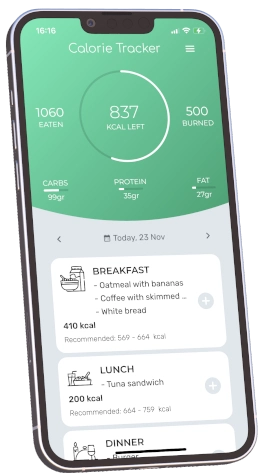Hormonal Belly vs Stress Belly
Ever felt your midsection seems inexplicably inflated?
You might be dealing with a “hormonal belly” or a “stress belly.”
Let’s unravel these concepts and find the best ways to tackle them!

What is a hormonal belly?
A hormonal belly refers to abdominal weight gain resulting from hormonal imbalances.
Various hormones, including cortisol, estrogen, and insulin, are crucial in regulating fat distribution in our bodies.
When these hormones are out of balance, it can lead to weight gain, particularly around the belly area.
Cortisol Lower Belly Fat
When you’re dealing with a hormonal belly, cortisol is often the main culprit.

This hormone, released under stress, can lead to the accumulation of fat around your lower abdomen.
High cortisol levels don’t just prompt your body to store fat, they can also influence where you put on weight, with a preference for the belly area.
What is a stress belly?
A stress belly specifically refers to a physical manifestation of stress in the abdominal area.

Unlike typical weight gain, a stress belly results from long-term chronic stress impacting the body’s metabolic processes, leading to an increase in abdominal fat.
This type of belly fat is particularly concerning because of its association with adverse health outcomes.
Stressed out belly
A stressed out belly doesn’t just concern fat; it’s also about how stress disrupts your digestive system.

Chronic stress can mess with your gastrointestinal function, leading to issues like bloating and gas - hence, the belly appears distended.
This isn’t just regular “fullness.” It’s your body responding to stress with slowed digestion, increased gas, and even inflammation, all contributing to that bloated look.
Difference between hormonal belly vs stress belly
While both the hormonal belly and stress belly involve the body’s response to stress hormones, primarily cortisol, there are nuances.
A hormonal belly is often linked with broader hormonal imbalances, potentially stemming from lifestyle, age, or medical conditions that impact hormonal levels.
For instance, a person going through menopause might experience a hormonal belly due to fluctuating estrogen levels.
On the other hand, a stress belly is directly related to chronic stress levels irrespective of other hormonal imbalances.
Picture a person with high work stress: they might eat healthily and exercise, but the ongoing stress from their job leads to a stress belly.

Their cortisol levels remain high, encouraging fat accumulation around the midsection.
These conditions also manifest differently.
A hormonal belly might show as a consistent extra layer of padding around the midsection, while a stressed-out belly may present more with digestive issues and bloating that fluctuates throughout the day.

Understanding these differences is crucial because the approach to mitigating them will vary based on the underlying cause.
Identifying abnormalities and triggers can help tailor effective interventions, whether they’re stress management techniques, dietary changes, hormonal therapies, or a combination of these strategies.

